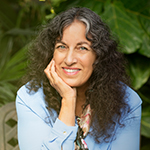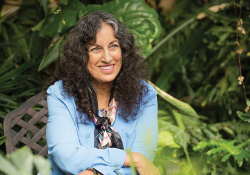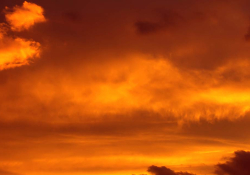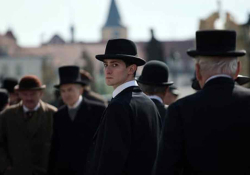Silenced? Fear and Courage in an Era of Book Bans
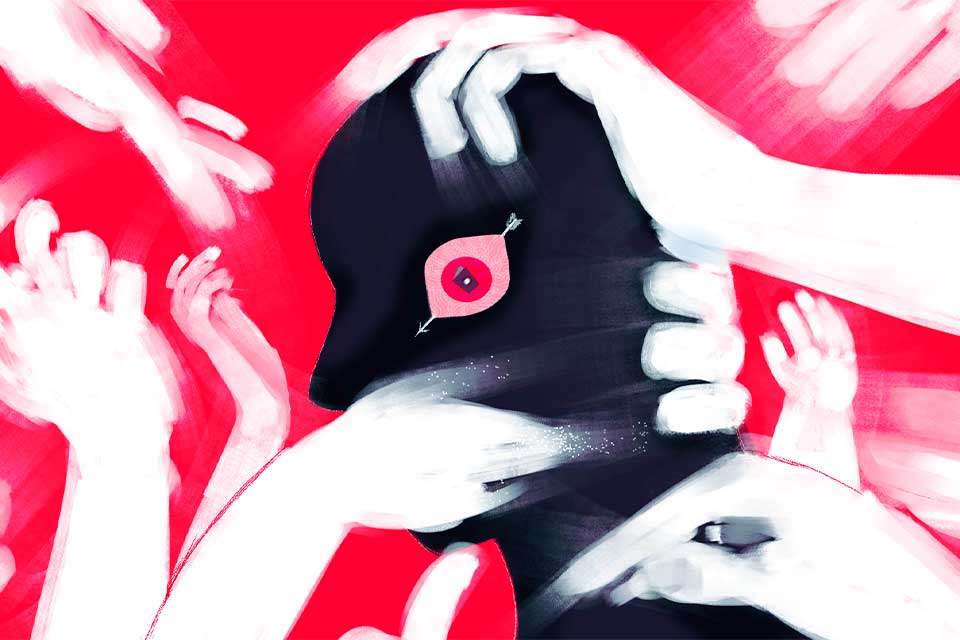
Reminding us that “freedom is a muscle,” a writer of children’s and young adult literature whose own Drum Dream Girl has been banned urges us to set aside fear and speak, write, and read about liberty and equality.
Writers in the United States are currently suffering through a barrage of hostile attacks against our books. This repression strikes me as the most drastic assault on expressive freedom since the blacklists of the McCarthy era, and the range of targeted books truly astonishes. In a predictable twist, books written for children and teenagers face the most scrutiny, with BIPOC and LGBQT authors especially vulnerable. Onlookers who shrug and claim the bans will help sell books fail to understand the landscape of literature for young readers. Book bans benefit no one and harm everyone.
Unfortunately, diverse authors aren’t always featured in chain bookstores; we depend upon schools and libraries. We care about our readers, the children and teens who might not have enough money to buy books. These children require a wide variety of reading materials in classrooms, school libraries, and public libraries. They deserve to choose what they read, with the guidance of their parents, teachers, and librarians. They don’t need rules set by their classmates’ parents or, in many cases, by fanatics who aren’t directly involved with schools, other than when acting as self-appointed censors.
How will the resulting chaos affect writers? Will we censor ourselves to avoid being attacked? Will we omit sensitive topics from our writing, even though many children and teens need stories about those exact topics? Will publishers begin rejecting potentially “high-risk” manuscripts for fear of outrage? Do reviewers and award committees shy away from giving stars and prizes to books that might offend extremists? Will libraries, schools, and bookstores opt to carry titles that seem likely to become controversial? Will our society revert to shelves full of nothing but antiquated “classics” written by white men? These threats even lurk outside the realm of creative fiction: how can biology teachers be expected to present the truth when ignorant individuals target anatomy and physiology textbooks, simply because they show how the human body works?
As you can see, I have more questions than answers. Such is the job of a poet. We ask. We wonder. We praise or we rage, but we rarely waste energy pretending that we know more about the mysteries of existence than other equally wonderstruck poets.
Poets praise or we rage, but we rarely waste energy pretending that we know more about the mysteries of existence than other equally wonderstruck poets.
What I do know is this: Freedom is a muscle. It atrophies whenever fear reaches into the mind of a writer, resulting in self-censorship or—even worse—total silence.
I know that writers are often the first targets of dictators. In times of uncertainty all over the world, poets, novelists, and journalists alike have been imprisoned or silenced. At this very moment, creative individuals languish in prison at the behest of various nation-states and their repressive ideologies. Why? Because we ask and we wonder while authoritarians propagandize, pretending to know what’s best for everyone else.
Pretense remains the essence of book bans. Extremists usurp spheres of power to dictate which types of poetry, fiction, and nonfiction deserve to be read. They demand this privilege, and although such acts thoroughly violate the treasured first amendment of our shared Constitution, they maintain their dogmatic ignorance.
Extremists pretend. They claim to have read every disputed library book, just as they claim to be infallible judges, dictating what is and is not age-appropriate. If they weren’t pretending, they would leave that task to professional librarians and teachers. Instead, librarians like Amanda Jones have received death threats for speaking up against book bans. Has fear caused Amanda Jones to be silenced? No. After being targeted with threats and insults, she wrote That Librarian: The Fight against Book Banning in America. She is not alone; many authors follow her courageous example. All over the United States, grassroots organizations have surfaced, formed by librarians, teachers, parents, and writers to protect the right to read freely. PEN America, PEN International, and other established organizations continue their long-standing tradition of defending our freedom to write. Publishers are speaking out, lawsuits have been launched, and above all, there is hope—because the McCarthy blacklists are not forgotten. Those imprisoned poets in other countries are not forgotten. We know what is “at stake,” a term that makes me think of the Inquisition and all the poets who, along with their verses, burned at the stake.
There is hope—because the McCarthy blacklists are not forgotten. Those imprisoned poets in other countries are not forgotten.
One might assume that banned books for young readers would all be sexually explicit or otherwise shocking. Nothing could be further from the truth. The lists of banned children’s and young adult books are long and absurd. They include famous authors and newcomers alike. Many are BIPOC and LGBTQ authors, with the subjects and genres being as varied as literature itself. Fantasy, romance, history, science, social justice, and biographies—all have been targets of self-appointed censors.
Ironically, my own potentially controversial young adult verse novels such as Wild Dreamers and Wings in the Wild are not yet targets, even though they include social and environmental justice issues. Instead, my most challenged children’s book is Drum Dream Girl, a biography of Millo Castro Zaldarriaga, who became a famous drummer in Cuba at the age of ten. Growing up in the 1930s, she was faced with the challenge of overcoming a cultural bias against female drummers, so it’s a story about equality and perseverance, intended to be inspiring.
Why is Drum Dream Girl viewed as dangerous by extremists? Tragically, the answer is obvious: racism. Millo was the daughter of an Afro-Cuban mother and Chinese Cuban father. Diversity lists used by school districts often include Drum Dream Girl, with book ban fanatics in parts of Florida, Ohio, Pennsylvania, and Michigan challenging those entire lists. I doubt they’ve read all the stories. I suspect that they simply don’t want white children to see brown faces on book covers.
The United States has been a sanctuary for my Cuban refugee relatives, and for anyone who treasures the freedom to read freely, write freely, and speak freely. The line between banning books and arresting poets is as fragile as a strand of mist. Every time a reporter uses the phrase “culture wars,” I feel nauseous. This is not about culture. It’s about racism, sexism, homophobia, transphobia, and xenophobia. When I read a book like Worm, Edel Rodríguez’s powerful new graphic memoir, I am reminded that freedom of speech, freedom to write, and freedom to read are all muscles. If we don’t use them, they will atrophy, and we won’t be able to defend children against tyranny.
So, there is no choice. We have to speak, write, and read about liberty and equality. We have to set our fears aside and choose courage. We won’t be silenced.
Clovis, California
